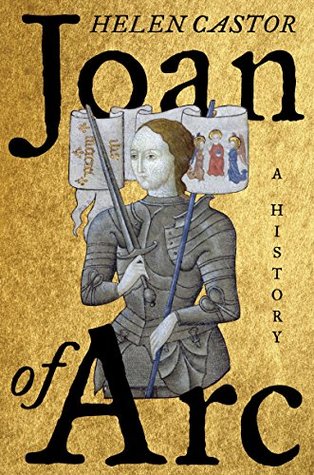Joan of Arc: A History
 Helen Castor describes the story of Joan of Arc as normally being written backwards. Everything is colored by the knowledge of what she would become to history. Also, the histories pour over the transcripts of her trials looking for clues to her early life from people who had already been heavily impacted by what she had done.
Helen Castor describes the story of Joan of Arc as normally being written backwards. Everything is colored by the knowledge of what she would become to history. Also, the histories pour over the transcripts of her trials looking for clues to her early life from people who had already been heavily impacted by what she had done.
So, Castor starts with the story of the civil war that tore France apart and allied Burgundy with an English bid for the French throne. How continuous political dissension tore apart the Kingdom of France and left it unable to act even in the face of a serious external threat.
And only at this point, is Joan introduced, at the point where she steps in to contemporary reports. Castor does a careful job of trying to present the religious attitudes of the day, of showing both how popular opinion would have reacted to events, and the careful scholastic investigation into Joan’s claims.
The last part of the book continues the collapse of English France after her death, and concludes with her second trial, where greatly changed political conditions guaranteed a different verdict than the original. It is at that point where people from Joan’s home village were questioned, and anything is said of her early life. There is then a short afterword that talks about her canonization as a saint in 1920.
In all, it’s a surprisingly short book, but well done, and a good look at early fifteenth-century France.

Discussion ¬